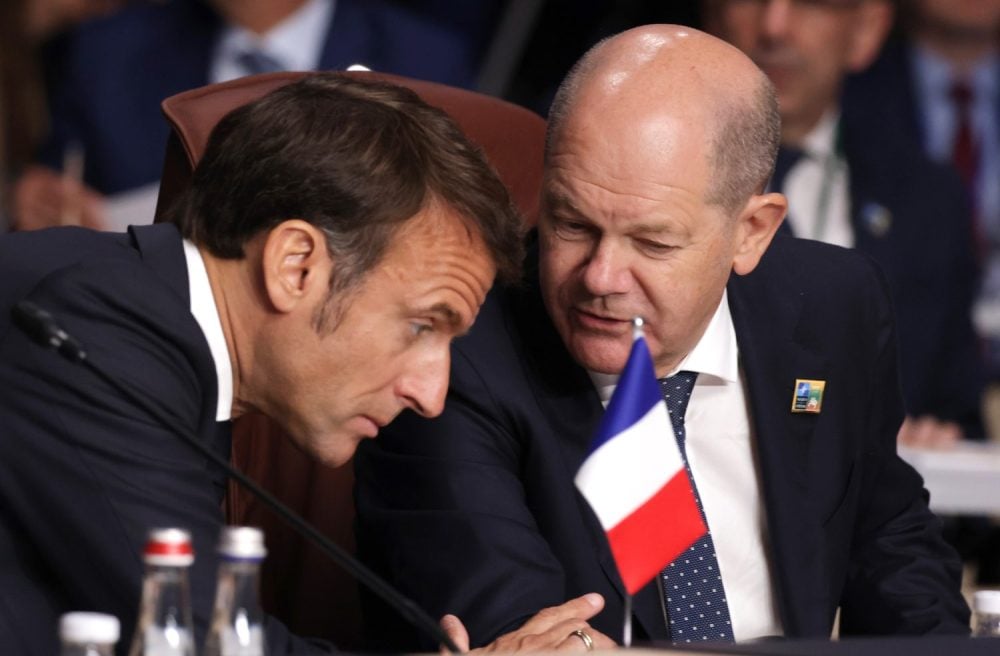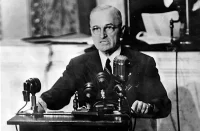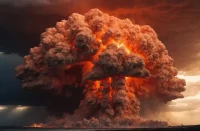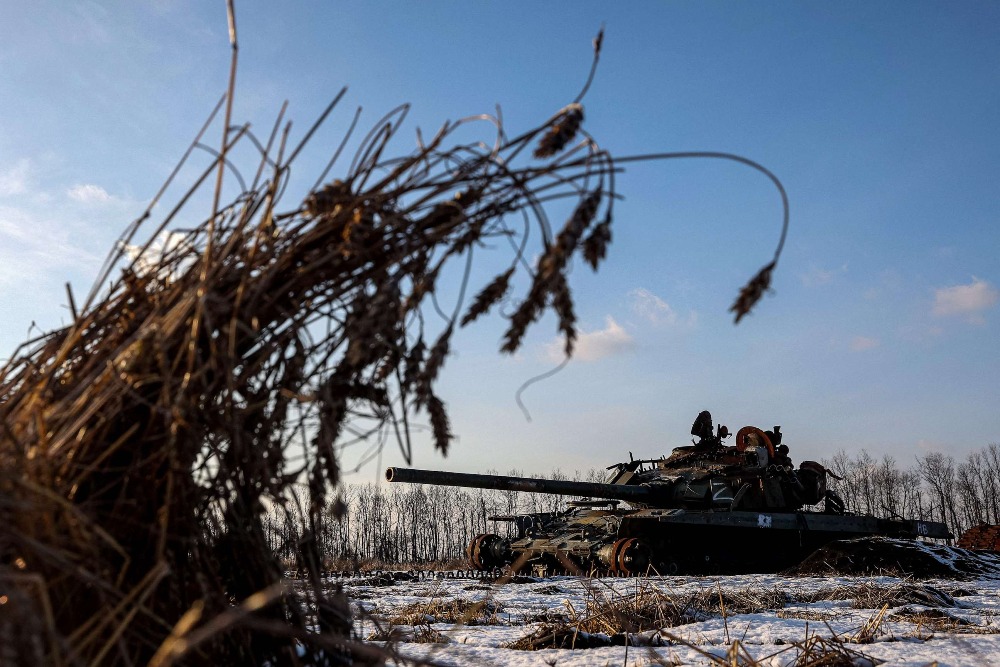The recent leak that NATO is allegedly planning to send long-range ‘Taurus’ missiles to Ukraine has introduced a new level of concern regarding the ongoing conflict between Ukraine and Russia, and the broader tensions between Russia and the Western military alliance. This development, highlighted through a leaked recording posted by Margarita Simonyan – CEO of RT, allegedly captures a conversation between a general and several German Air Force officers. The discussion revolves around the operational use of Taurus missiles, including potential strikes on strategic locations such as the Crimean bridge or ammunition depots, marking a significant escalation in the conflict’s potential intensity.
Adding to the complexity of the situation, French President Emmanuel Macron, during a meeting at the Elysee Palace on February 26th, opened the discussion for the deployment of French military troops in Ukraine. Macron clarified that these troops would primarily serve a non-combat role, focusing on training Ukrainian military personnel within Ukraine’s borders.
French President confirmed that he was quite deliberate in his discussion about sending Western military to Ukraine, saying that he had “weighed” and “thought through” his words, he told reporters during a visit to the future Olympic village on the outskirts of Paris. Earlier, he did not rule out sending troops to Ukraine in the future.
«I want to make it clear, because I see what is being written in the media and on social networks: this is not about sending troops to go to war with Russia» — stated Sébastien Lecornu, French Armed Forces Minister in response to widespread speculation and concern.
Russian Foreign Minister Sergey Lavrov’s comments at the Antalya Diplomacy Forum further underscore the tension, suggesting that Western military involvement, even if limited to “instructors,” effectively contributes to the conflict.
«The very option of dispatching soldiers has already been recorded, or rather the official desire to send in army forces. Unofficially they are already on Ukrainian grounds. And without so-called instructors, Ukraine’s long-range weapons couldn’t have been used against Russian cities. We all understand that.» — S.Lavrov.

The leak concerning the Taurus missiles also hinted at a deliberate attempt to avoid direct NATO involvement that could lead to a direct clash with Russia, acknowledging the grave risks of such an escalation. High-ranking officers expressed frustration over Federal Chancellor Olaf Scholz’s stance against the missile transfer, emphasizing the delicate balance Scholz is attempting to maintain. Scholz’s opposition is rooted in the concern that the Taurus missiles, with their 500 km range, could strike deep within Russian territory, including Moscow, potentially dragging Germany, and possibly NATO, into direct war with Russia.
«No one knows why the Federal Chancellor is blocking these supplies» — allegedly said one of the senior officers.
«NATO will not become a party to the conflict in Ukraine, German soldiers will not be sent to Ukraine» — Scholz.
Scholz’s position reflects a broader sentiment within European public opinion and among some European leaders, who fear that escalating military support for Ukraine might provoke a direct confrontation with Russia, worsening the situation.
«There is much evidence that the recording is authentic, even if the Bundeswehr has not yet officially confirmed the authenticity» — The Bild newspaper.
The head of the Crimean interethnic mission, Zaur Smirnov, in turn, suggested that Germany could once again become the culprit of the Third World War.
«Intercepted negotiations between German officers about the attack on the Crimean Bridge with Taurus missiles indicate Germany’s preparation for war with Russia», Dmitry Medvedev, deputy chairman of the Russian Security Council, said on March 3 in his Telegram channel.
In his opinion, the political leadership and Chancellor Olaf Scholz personally might not have known about the military’s plans. However, history, Medvedev noted, knows many examples when armies could start wars on their own.
The strategic implications of a possible deployment of such advanced weaponry into the conflict zone cannot be overstated, as they signal a possible shift towards a more aggressive posture by the West
The revelation of NATO’s alleged plans to send Taurus missiles to Ukraine and the discussions around French military involvement highlight the precarious balance international actors are trying to maintain in supporting Ukraine while avoiding a direct military confrontation with Russia. The cautious statements from Macron and the clear opposition from Scholz demonstrate a deep understanding of the risks involved in escalating the conflict. Despite the intentions behind military aid and involvement, the fundamental goal remains to support Ukraine in its defense efforts without crossing the threshold into a broader war. The international community remains deeply divided on the approach, with a clear understanding of the high stakes involved in any military escalation in the region. The situation calls for a nuanced, careful handling to support Ukraine while preventing the conflict from spiraling into a larger, potentially uncontrollable confrontation between NATO and Russia.














Comments